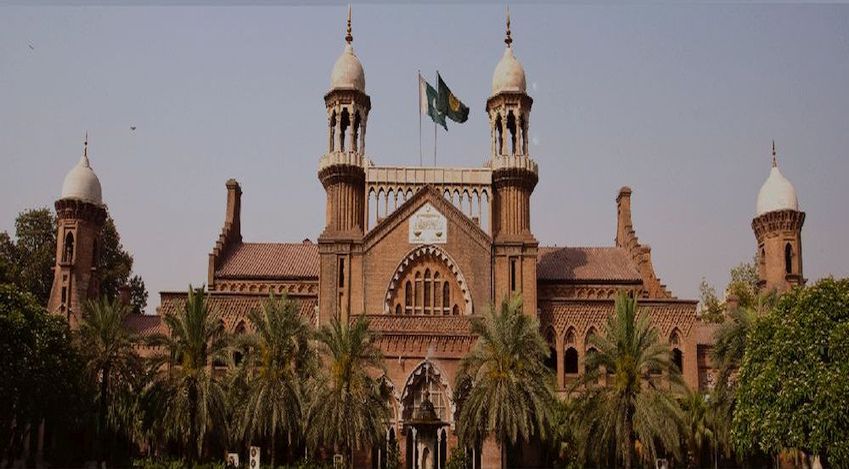Errors in Revenue Records can be corrected by Board of Revenue through Review Jurisdiction --- Lahore High Court, Lahore
Islamabad 21-02-2025: The Lahore High Court (LHC) has dismissed a constitutional petition filed by the Chief Administrator of Auqaf, Punjab, against private respondents regarding 99 Kanals and 11 Marlas of land, restoring their ownership after a protracted legal battle.
The Court upheld the decision of the Board of Revenue, Punjab, which had set aside Mutation No. 2088 and reinstated Mutation No. 1098 in favor of the private Respondents. The dispute revolved around land originally allotted to a Dargah, later declared Waqf property, and the Respondents’ subsequent claim based on separate land allotment orders issued by revenue authorities.
The legal conflict arose from land measuring 387 Kanals and 17 Marlas, initially allotted to a Dargah and later declared Waqf property by the Auqaf Department through a notification dated 29-11-1968. The private respondents’ predecessor, had exchanged portions of the Dargah’s land with his personal irrigated land, but these exchanges were declared illegal by the Supreme Court of Pakistan in 2004.
However, a parallel development in 1972 saw the reduction of Waqf property by 126 Kanals and 11 Marlas, reverting this land to the Central Government. From this, the private respondents were allotted 99 Kanals and 11 Marlas in 1981, which they continued to occupy until revenue authorities wrongfully canceled their mutation in 1988, leading to litigation.
The Auqaf Department argued that:
- The review petition before the Board of Revenue was time-barred.
- The land was Waqf property and its status could not be challenged due to Section 21 of the Punjab Waqf Properties Ordinance, 1979.
- The Supreme Court of Pakistan had already ruled on related matters, meaning the Respondents’ claim was barred by res judicata.
The private respondents contended that:
- Their review petition was filed within the legal limitation period under Section 4 of the Limitation Act, 1908.
- The Supreme Court’s ruling only concerned exchanged land, and their claim to 99 Kanals and 11 Marlas was separate and independently allotted.
- The land allotment orders in their favor from 1972, 1979, and 1981 remained unchallenged, making their claim legally valid.
The Lahore High Court, in its ruling, held that the Board of Revenue properly exercised its review jurisdiction under Section 8 of the West Pakistan Board of Revenue Act, 1957. Since the cancellation of Mutation No. 1098 was based on an error apparent on the face of the record, the Board had the authority to rectify this mistake.
The Court rejected the Auqaf Department’s argument of res judicata, emphasizing that previous litigation [W.P. No. 5724/1992] did not adjudicate the Respondents’ specific claim regarding Mutation No. 1098.
The Court observed that:
- The Respondents’ land allotment orders (1972, 1979, and 1981) were never challenged and thus attained finality.
- The Auqaf Department’s failure to update its Waqf notification in 1968 caused confusion, leading to wrongful cancellation of the Respondents’ land mutation in 1988.
The Court ruled that the review petition was filed within time, as the Limitation Act allows petitions to be filed on the next working day if the deadline falls on a holiday.
With the dismissal of [W.P. No. 32834/2024], the Lahore High Court has reaffirmed the Respondents’ legal ownership of 99 Kanals and 11 Marlas, marking a significant victory in land dispute cases involving Waqf properties.
The decision reinforces the principle that errors in revenue records can be corrected through review, and that previous litigation does not automatically bar new claims if they were not adjudicated on their specific merits.
Powered by Froala Editor








